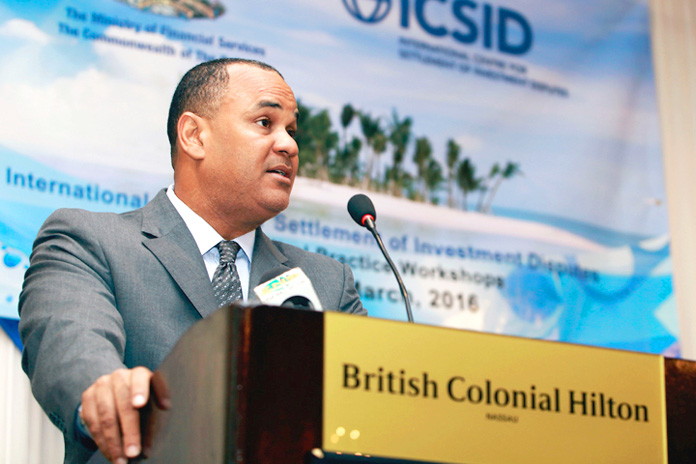
FREEPORT, The Bahamas — As Grand Bahamians continue to rebuild their lives following destruction caused by Hurricane Matthew in October of this year, a government program is poised to make the island’s restoration a much smoother prospect.
The East and West Grand Bahama Economic Development Regulation will go a long way in helping small businesses on the island to restore their services and products as quickly as possible, which in turn, will have a positive economic impact on the island of Grand Bahama. Although the program is not a new one, in the face of restoration from a natural disaster, it is quickly becoming a viable option for business owners.
Residents in East and West Grand Bahama can take advantage of duty-free concessions within their respective communities.
Such concessions are possible thanks to the East and West Grand Bahama Economic Development Regulation, which was designed by the Ministry of Finance in conjunction with the Ministry for Grand Bahama.
According to officials from the Ministry of Grand Bahama, the East and West Grand Bahama Economic Development Regulation, which was done through an amendment to the Tariff Act in 2014, is designed to implement Duty Free Concessions for the purchase and importation of capital goods for approved residential or commercial capital development projects in the Eastern and Western districts of Grand Bahama Island, in order to spur economic growth, and create employment & entrepreneurial opportunities for Grand Bahamians, outside the Port Area.
The Government’s question was “how best could we assist the people in the west and the east to better develop their communities,” said a representative from the Ministry of Grand Bahama. “The Minister for Grand Bahama and his team sat with the Ministry of Finance to come up with an appropriate way to assist these communities, particularly following the devastating hurricanes of 2004 and 2005. After several meetings, the discussion gave birth to the Economic Development Regulation program, which we believe will go a long way to have a positive economic impact in these communities.”
On July 1st, 2014 an amendment to the Tariff Act under Tariff Code 98.56 of Chapter 98 of the First Schedule was made to provide duty free concessions on “capital goods” for businesses in East and West Grand Bahama.
It should be noted that these concessions have nothing to do with the concessions that are enjoyed by business owners in Freeport under the Hawksbill Creek Agreement. These concessions are only applicable in the prescribed areas, namely East and West Grand Bahama.
The boundaries of East & West Grand Bahama, outside the city of Freeport, are inclusive of Russell Town, Pelican Point, Harbour West, Williams Town, McLean’s Town, Bartlett Hill, Smith’s Point, Sweeting’s Cay, Hanna Hill, Mader Town, Water Cay, Pinedale, Laing Town, Deep Water Cay, Bevan’s Town, Mack Town, Martin Town, Freetown, Hunters, Jones Town, Gambier Point, Lewis Yard, Seagrape, High Rock, Pinder’s Point, Pine Forest, Eight Mile Rock, Hepburn Town, Holmes Rock, Deadman’s Reef, Bootle Bay and West End.
The duty-free license applicant must be a current business licensee of The Bahamas Government in East or West Grand Bahama, who intends to invest a minimum of $5,000 into their operations over a period of one year for either one time repairs/expansion to an existing building, construction of a new building, or for capital goods for the start-up/expansion of a commercial business venture.
The types of investment which this duty-free concession will go towards include approved residential or commercial capital development projects in East/West Grand Bahama including but not limited to: restaurants, funeral homes, motels, bed and breakfasts, and any other type of business operations licensed by the Government through the Department of Inland Revenue/Business License.
Residents who meet the requirements can take advantage of capital goods such as building materials, equipment, furnishings and fixtures – all for their respective businesses. Licensees can also use the concession to purchase a vehicle or even a build a home duty-free.
It should be noted, however, all approved vehicles must be used solely for the purpose of the business of the licensee and should be aligned with the nature of the business. Further, as for a new home, a licensee registered under this regulation in East and West Grand Bahama will be permitted to erect a new primary private residence, duty-free for the personal use and occupation of the licensee and family, but construction of the home must be outside of the Port Area.
“Under this regulation, obtaining a duty-exempted home is not a social program, but is designed specifically as further incentive to encourage approved business owners to continue investing in expanding their enterprises and increasing economic activity within their communities,” an official from the Ministry for Grand Bahama advised.







